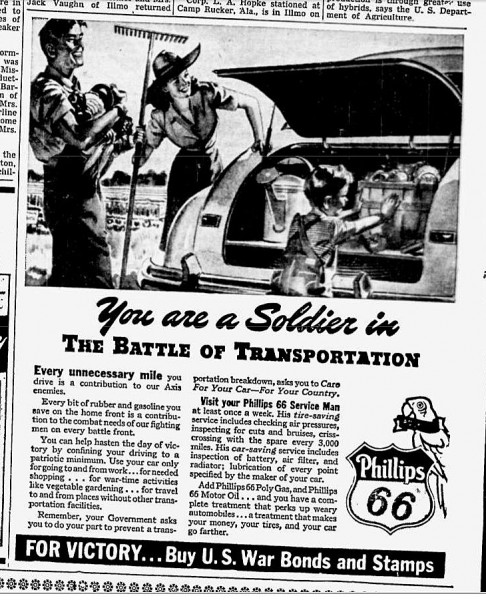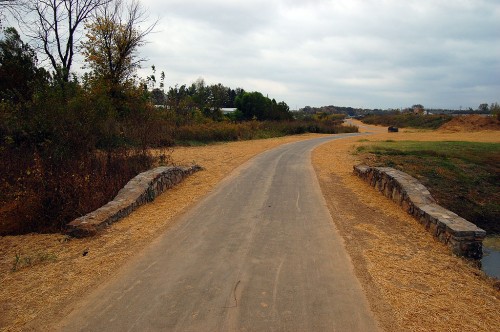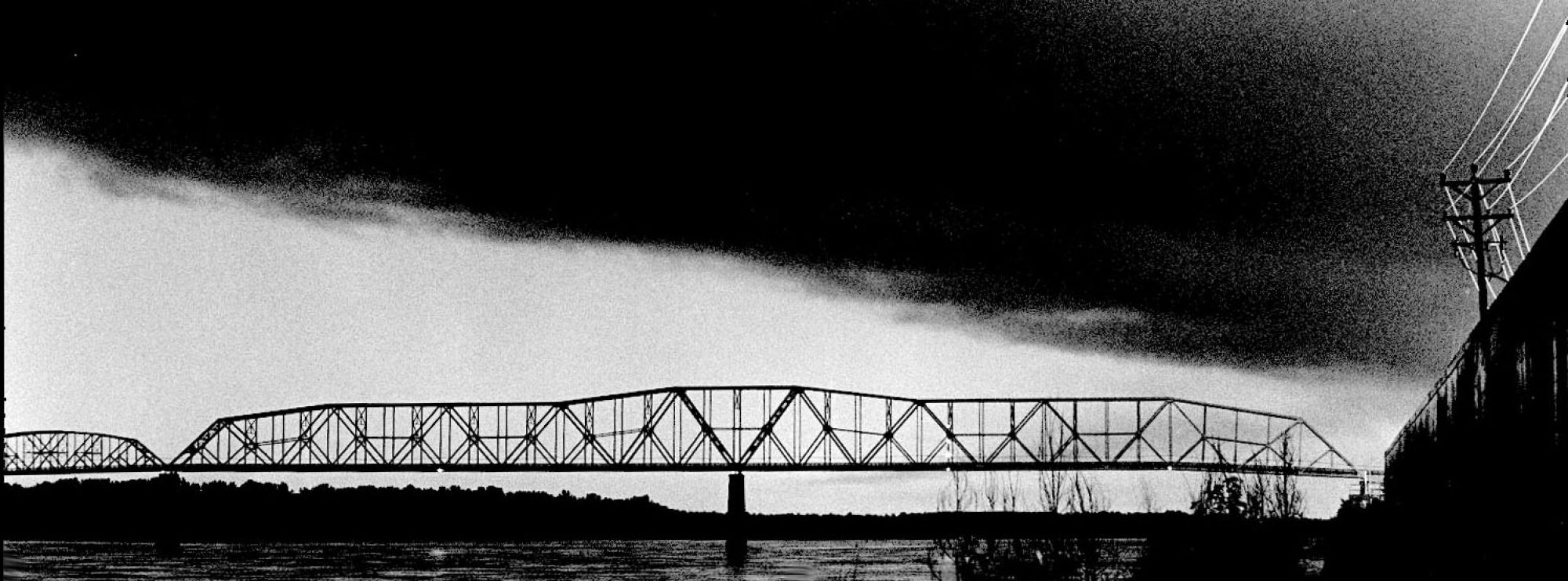 I was looking in the June 11, 1943, Southeast Missourian for another story when my eye was drawn to a Phillips 66 ad headlined, “You are a Soldier in The Battle of Transportation.”
I was looking in the June 11, 1943, Southeast Missourian for another story when my eye was drawn to a Phillips 66 ad headlined, “You are a Soldier in The Battle of Transportation.”
Gas headed to $4+ per gallon
The ad copy might not have caught my attention if I hadn’t seen two things in the last couple of days
- Gas prices in the $3.89 range in West Palm Beach
- A Missourian story about proposed bike lanes in Cape
Grant for 30-40 miles of bike lanes
 A Missourian story Wednesday said that a $253,000 grant from the Missouri Foundation for Health will pay for 30 to 40 miles of bike lanes along seven Cape streets, which officials said will provide a healthy connection to the city’s parks, schools and other recreational areas.
A Missourian story Wednesday said that a $253,000 grant from the Missouri Foundation for Health will pay for 30 to 40 miles of bike lanes along seven Cape streets, which officials said will provide a healthy connection to the city’s parks, schools and other recreational areas.
Sounds like a good idea, right? Especially after I wrote a piece praising Cape for looking at bike trails as transportation corridors, not just for recreation back in December
Who could be against that?
There’s a catch, though. “One thing could put the brakes on the project, however — negative public reaction to the proposal’s plan to convert five of the seven bike routes to no-parking streets.”
Well, it didn’t take long for the story to get 40 comments, many mocking the idea of bike lanes. Interestingly enough, I don’t think I saw a single comment about the no-parking issue. Most were of this ilk:
Who commutes by bike in Cape? Last time I rode one was when I was 15. Get a car! Bike lanes are lame.
Where’s THIS message?
Have you seen this World War II message delivered on TV, radio or print or by any politicians?
“Every bit of rubber and gasoline you save on the home front is a contribution to the combat needs of our fighting men on every battle front.
“You can help hasten the day of victory by confining your driving to a patriotic minimum. Use your car only for going to and from work …for needed shopping…for war-time activities like vegetable gardening…for travel to and from places without other transportation facilities.
“Remember, your Government asks you to do your part to prevent a transportation breakdown, asks you to care for your car–for your country.”
The concept of shared sacrifice for the common good just isn’t popular these days, I guess.

Your timing is superb, ken!
some things never chamge do they.
Well if the true were know we in USA had plenty of gasoline in WWII. teh real issue was rubber, the Japanese had al teh rubber in southeast asia and we did not have enough of the stuff. So rationing gasoline was easy to do and ti saved tires. Cannot drive too much so tires lasted a long time. Remember a sset of tires in those days was a tire and inter tubes twice the rubber as today. Plus tires of the time only lasted 5,000 to 10,000 miles max…
Smart thinking on someones part in WWII.
As for bike lanes in Cape why not? I used to ride my single speed all over the place!
How interesting. Sounds like we could use some of the 1943 logic today. My gas, high test in north Georgia, was $3.51 yesterday. No telling how high it is today. I’ve always said we war babies were a result of the rubber shortage!
All the images displayed by Ken remind me that there is little evidence we are at war today: where are the war bonds and stamps, the Victory Gardens, and “shared sacrifices”? Truth is, the rest of the country is partying while a few of our children are fighting and dying in far away countries. Something is wrong with this picture.